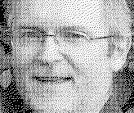WASHINGTON — The recession has hit middle-income and poor families hardest, widening the economic gap between the richest and poorest Americans as rippling job layoffs ravaged household budgets.
The wealthiest 10 percent of Americans — those making more than $138,000 each year — earned 11.4 times the roughly $12,000 made by those living near or below the poverty line in 2008, according to newly released census figures. That ratio was an increase from 11.2 in 2007 and the previous high of 11.22 in 2003.
Household income declined across all groups, but at sharper percentage levels for middle-income and poor Americans. Median income fell last year from $52,163 to $50,303, wiping out a decade’s worth of gains to hit the lowest level since 1997.
Poverty jumped sharply to 13.2 percent, an 11-year high.
“No one should be surprised at the increased disparity,” said Richard Freeman, an economist at Harvard University. “Unemployment hurts normal workers who do not have the golden parachutes the folks at the top have.”
Analysts attributed the widening gap to the wave of layoffs in the economic downturn that have devastated household budgets. They said while the richest Americans may be seeing reductions in executive pay, those at the bottom of the income ladder are often unemployed and struggling to get by.
Large cities such as Atlanta, Washington, New York, San Francisco, Miami and Chicago had the most inequality, due largely to years of middle-class flight to the suburbs. Declining industrial cities with pockets of well-off neighborhoods, such as Pittsburgh, Cleveland and Buffalo, also had sharp disparities.
Up-and-coming cities with growing middle-class populations, such as Mesa, Ariz., Riverside, Calif., Arlington, Texas, and Henderson, Nev., were among the areas showing the least income differences between rich and poor.
It’s unclear whether income inequality will continue to worsen in major cities, said William H. Frey, a demographer at the Brookings Institution. Many Americans are staying put for now in traditional cities to look for jobs and because of frozen lines of credit.
“During the years of the housing bubble, there was middle-class movement from unaffordable metros with high-income inequality,” Frey said. “Now that the bubble burst, more of the population may be headed back to the high-inequality areas, stemming their middle-class losses.”
READ THE FULL ARTICLE
HERE
MY NEW BLOG IS UP NOW!
8 years ago


No comments:
Post a Comment